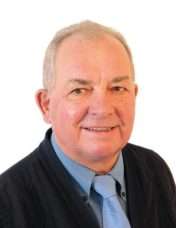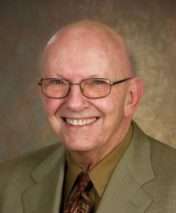Medal of Excellence Awardees

Since 1984, the Medal of Excellence in Composite Materials has been awarded to pioneers and innovators that have made significant contributions in the field of composite materials through leadership, scholarly endeavor, invention and/or economic enterprise over a sustained period of years. The medal celebrates excellence on visionary impact, novel theories, discovery of patented processes, and/or exceptional publications.
2021
Professor Dr. -Ing. Klaus Friedrich
The late Professor and Scientific-Technical Director of Materials Sciences
Professor Jack R. Vinson
H. Fletcher Brown Professor Emeritus of Mechanical and Aerospace Engineering
2019
Professor Michael R. Wisnom
Director, Bristol Composites Institute
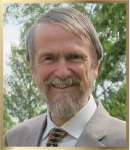 |
Michael Wisnom is Professor of Aerospace Structures at the University of Bristol. He is Director of Bristol Composites Institute (ACCIS), which builds on the work of the Advanced Composites Collaboration for Innovation and Science which he founded in 2007. He is a leading expert on the mechanics and failure of fibre reinforced composites, with over 400 published papers. He is a member of the steering board of the UK National Composites Centre, Editor in Chief and European Editor for Applied Science and Manufacturing of the international journal Composites Part A, and was Director of the Rolls-Royce Composites University Technology Centre from 2007-2017. He is a Fellow of the Royal Academy of Engineering, of the Institution of Mechanical Engineers and of the American Society for Composites. Professor Wisnom received a Royal Society Wolfson Research Merit Award in 2005 and was President of the International Committee on Composite Materials from 2009-2011. |
Dr. Leslie Jay Cohen
Senior Vice President of New Business and Strategic Technologies
 |
Dr. Cohen joined HITCO in 2001. He served for 31 years at McDonnell Douglas where he held positions of increasing responsibility in Technology Operations and Business Development. As a Senior Director, he directed all Business Development for MDAC in the Russian Federation. He has published over 40 papers on Advanced Composite design and development, is a lecturer in Advanced Composites and has been awarded the USSR Gold Medal for Science and Technology, and a foreign member of the Russian Academy of Sciences, Judd Hall Award for Manufacturing of Composites and SAMPE Fellow. He is a recipient of the prestigious George Lubin Award for excellence in composites from SAMPE. He holds B.S, M.S., and Ph D. degrees from Carnegie Mellon University, and a Fulbright Post-Doctoral at the Technion Israel Institute of Technology specializing in Structures and Materials. |
2016
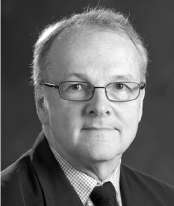 |
Dr. Lawrence T. Drzal
Dr. Lawrence T. Drzal is a University Distinguished Professor in the Chemical Engineering and Materials Science Department in the College of Engineering at Michigan State University. He is also the Director of the Composite Materials and Structures Center at Michigan State University. From 1991-1999 he was co-Director of the NSF State/Industry/University Center for Low-Cost, High-Speed Polymer Composites Processing at MSU and recently was appointed Director of the Vehicle Technical Application Area in the Institute for Advanced Composites Manufacturing Innovation (IACMI). Read More His composite materials research is primarily in adhesion and the fiber-matrix interphase in polymer matrix composite materials reinforced with carbon, glass, polymeric and biobased fibers and in multifunctional composites in which graphene nanoplatelets, cellulose nanofibers, and other nanoparticles are added to the fiber-matrix interphase. He has over 400 peer reviewed research papers and 35 patents and was designated a “Highly Cited Researcher in Material Science” by ISIHighlyCited.com. He has received research awards from the Adhesion Society, US Air Force Materials Laboratory, American Society for Composites, 3M and Dow Corning. Dr. Drzal has been elected a Fellow of the American Society for Composites, Adhesion Society, American Institute of Chemists, Society of Plastics Engineers, and the Society for the Advancement of Material and Process Engineering. In 2007, Dr. Drzal co-founded XG Sciences, Inc, a private Michigan company that is currently the world’s largest manufacturer of graphene nanoplatelets using processes and technologies developed in his lab at MSU. He serves as its Chief Scientist. |
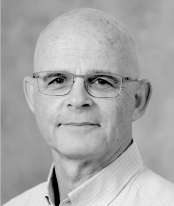 |
Dr. Daniel Wagner
Dr. H. Daniel Wagner is the Livio Norzi Professor of Materials Science in the Department of Materials and Interfaces at the Weizmann Institute of Science in Rehovot, Israel. Born in Israel, Prof. Wagner grew up in Belgium where he earned a License in Physics from the Free University of Brussels (1975). He was awarded MSc (1977) and PhD (1983) degrees in Materials Science from the Hebrew University of Jerusalem. He spent three years at Cornell University as a postdoctoral associate and lecturer before joining the Weizmann Institute’s Department of Materials Research (now the Department of Materials and Interfaces) in 1986. Read More The author of over 250 papers and various chapters in books, his current scientific interests include the micromechanics of advanced composites and their interfaces, novel man-made materials such as carbon nanotubes and nanocomposites, and the mechanics of natural and nature-inspired structures. He is a fellow of several professional societies, and also holds a number of patents in the area of composites. He was a visiting professor at various institutions, including the Max Planck Institute in Golm-Potsdam, the Ecole Centrale in Paris, the Technical University of Hamburg-Harburg (as a ‘Mercator’ Guest Professor), the Centre de Recherches Paul Pascal in Bordeaux, Exxon Research and Engineering in Annandale, New Jersey, and more. In 2000 he was elected Chairman of the Gordon Research Conference on Composites in Ventura, California, and in 2013 he was invited to present the Harvard-MIT Joint Nanomaterials Special Lecture at the Massachusetts Institute of Technology. Recently he was the Chairman of the COMPO2014 Nanocomposites and Biocomposites conference at the Weizmann Institute. He is the recipient of a number of prizes and awards, among them the 1991 Fiber Society Award (USA), 2010 Gutwirth Research Prize (Israel), the 2014 Christoffel Plantin Prize (Belgium), and the 2014 Landau Prize in Chemical and Materials Engineering (Israel). |
2014
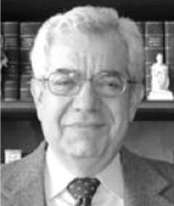 |
Dr. Isaac Daniel
Dr. Isaac Daniel is the Walter P. Murphy Professor of Theoretical and Applied Mechanics and Director at the Center for Intelligent Processing of Composites at Northwestern University. He received his doctoral degree from Illinois Institute of Technology. Before assuming his current role at Northwestern University, Daniel served as Director of the Theoretical and Applied Mechanics Program from 1996-2009. Daniel’s research encompasses mechanics and materials with special emphasis on experimental mechanics and composite materials. Read More His composite materials work has included processing, characterization and modeling of polymer, ceramic and metal matrix composites; nanocomposites and hybrid nano/microcomposites; fracture and damage mechanics; nondestructive evaluation; and life prediction. A fellow of several professional societies, Daniel’s career honors include the William M. Murray Medal from the Society for Experimental Mechanics and the Distinguished Research Award from the American Society for Composites. He is an honorary member of the Society for Experimental Mechanics (2007), and a member of the European Academy of Sciences (2009) and the European Academy of Sciences and Arts (2009). He received an Honorary Doctoral degree from Democritus University in Greece (2013). A renowned lecturer, keynote and plenary speaker, nationally and internationally, Daniel is the author of more than 400 publications and twelve book chapters; and author, co-author or editor of five volumes including a widely used textbook entitled “Engineering Mechanics of Composite Materials,” now in its second edition. He holds four patents related to biomedical applications and processing of composite materials. |
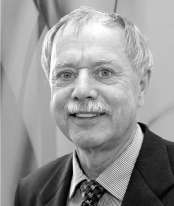 |
Dr. Karl Schulte
Dr. Karl Schulte, Professor and former Director of the Institute of Composite Materials, has been a professor at Hamburg University of Technology (TUHH) since 1992. He previously served as Director of the TUHH Institute of Composite Materials until 2013. Read More After starting his career as an apprentice electrician, Schulte earned a diploma degree in mechanical engineering and a doctoral degree in materials science from the Ruhr-Universität in Bochum (Germany). Until 1991 he worked with DLR (German Aerospace Research Center, Institute of Materials Science) in Cologne, Germany. He has been a visiting professor at Virginia Tech., Blacksburg, VA, USA, and University of Cambridge, Department of Materials Science and Metallurgy, Cambridge, UK. His research focused on degradation of fibre reinforced composite materials, nanocomposites and the synthesis of carbon nanotubes and Aerographite, a three dimensional graphitic structure. Schulte was named a “Composites World Fellow” in 2013 by the International Committee for Composite Materials. He is an elected By-Fellow of the Churchill College in Cambridge, UK and he holds a Distinguished Adjunct Professorship at the King Abdulaziz University in Jeddah, Saudi Arabia. Designated a “Highly Cited Researcher in Material Science” by ISIHighlyCited.com, Schulte has published more than 300 peer-reviewed publications with his collaborators. He is the European editor of the international journal Composites Science and Technology. |
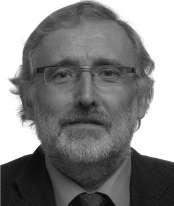 |
Dr. Ignaas Verpoest
Dr. Ignaas Verpoest is the Toray Chaired Professor Emeritus of Composite Materials in the Department of Materials Engineering (MTM) at Katholieke Universiteit Leuven (KU Leuven), Belgium. Prof. Em. Ignaas Verpoest earned his master’s and doctoral degrees in materials engineering at the Katholieke Universiteit Leuven in 1972 and 1982, respectively. As a full professor at KU Lueven from 1990-2013, his research focused on mesomechanics of (textile based) composites, nano-engineered composites, natural fibre reinforced (bio)polymers and advanced production methods for composites. He is the author of over 700 journal and conference papers and three books, and he holds 15 patents. Verpoest is chairman of the European Scientific Committee of CELC, the European Confederation on Flax and Hemp. Read More He was president of the European Society for Composite Materials and the International Committee on Composite Materials; and chairman of the Materials Research Centre at KU Leuven. He is a member of the Royal Flemish Academy of Belgium for Science and Art. Among his career honors are the Descartes Prize for Science Communication of the European Commission (2004), the International Fellowship of the Society for the Advancement of Materials Processing and Engineering (SAMPE, 2009) and of the International Committee on Composite Materials (ICCM, 2009). He also is co-founder and board member of the Econcore, a worldwide producer of innovative honeycomb cores. |
2009
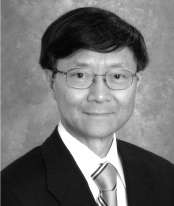 |
Dr. Tsu-Wei Chou
Dr. Tsu-Wei Chou is the Pierre S. du Pont Chair of Engineering at the University of Delaware. He joined the University in 1969, as a faculty member in the Department of Mechanical Engineering and has had a distinguished career dedicated to research excellence and scholarship. He holds a B.S. degree in civil engineering from the National Taiwan University, an M.S. in materials science from Northwestern University, and a Ph.D. in materials science from Stanford University. Dr. Chou has served as a visiting professor at universities and research institutes throughout the world, and he has performed composites technology assessments in Europe and Asia for ONR and ARO, respectively, and he has authored over 300 archival journal papers and book chapters in these areas. Read More Dr. Chou is the author of Microstructural Design of Fiber Composites (Cambridge University Press), co-author of Composite Materials and Their Use in Structures (Elsevier-Applied Science), and the editor of several other books. He is also Editor-in-Chief of the international journal Composites Science and Technology. Dr. Chou is a fellow of six professional societies in engineering and materials, and he has received the Charles Russ Richards Memorial Award and the Worcester Reed Warner Medal of ASME, ASC’s Distinguished Research Award, and UD’s Francis Alison Medal. He has also been recognized by ISI as a “Highly Cited Researcher.” |
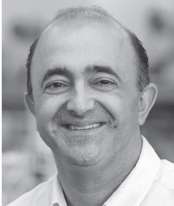 |
Dr. Anoush Poursartip
Dr. Anoush Poursartip has played an international leadership role in the advancement of composites processing science and technologies in academe and the aerospace industry. He is a Professor in the Department of Materials Engineering at The University of British Columbia in Vancouver, Canada. He joined UBC in 1984 after gaining a B.A. and Ph.D. from the Universitty of Cambridge in the United Kingdom. Read More Working closely with two colleagues, he directs the Composites Group at UBC, an interdisciplinary research group from Materials Engineering and Civil Engineering, with facilities in the state-of-the-art Advanced Materials and Process Engineering Laboratory. Dr. Poursartip has been a long-standing member of the Executive Council of the International Committee on Composite Materials, including serving as Executive Secretary and President. He has been a member of the editorial boards of the Journal of Composite Materials and Composites Part A. He is also a World Fellow and Life Member of ICCM and has won two Outstanding Performance Awards from The Boeing Company. |
2008
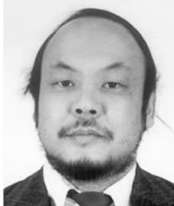 |
Dr. Takahashi Ishikawa
Dr. Takahashi Ishikawa is the leading figure in the field of composite materials in Japan. He has played a leadership role in the Japan Society for Composite Materials and has held positions of increasing responsibility within the Japan Aerospace Exploratory Agency, where he currently serves as Director of the Aviation Program Group. Dr. Ishikawa also holds adjunct faculty positions in four Japanese universities. Read More He has had a very prolific record of scholarship in the field of composite materials, including authoring or co-authoring three books and more than sixty archival publications in the Japanese literature and thirty in English. Dr. Ishikawa has served as Editor in Chief of Advanced Composite Materials and Journal of Japan Society for Aeronautical and Space Sciences; he has also been a member of the Editorial Board of Composites Science and Technology and a member of the Honorary Advisory Board of Comprehensive Composite Materials. |
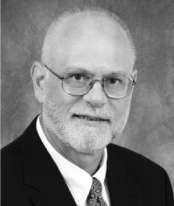 |
Dr. Alan G. Miller
Dr. Alan Miller has made extraordinary contributions to research and development activities in the field of composite materials and structures at the Boeing Company. Read More Director of Technology Integration for the 787 Dreamliner program, Dr. Miller oversees the efforts to develop key technologies for aerodynamics, structures, materials, systems, payloads, noise, environment, quality, and manufacturing and to transition them into practice on the Dreamliner. These efforts are carried out in cooperation with a global alliance of partners and suppliers from North America, Europe, Asia, and Australia. Dr. Miller is on the Executive Board of the FAA Center of Excellence at the University of Washington–Advanced Materials for Transport Aircraft Structures. He is also a member of the SAMPE Europe Scientific Committee. Prior to joining the 787 team, Dr. Miller was Senior Manager for Manufacturing and Quality Technology & Product Development for Commercial Airplanes Manufacturing Research and Development. |
2005
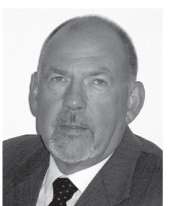 |
Dr. John C. Halpin
Dr. John C. Halpin worked for the Air Force Materiel Command at Wright Patterson AFB for more than 30 years before retiring in 1996. As Chief Engineer for the Aeronautical System Center, Dr. Halpin had responsibility for all USAF aircraft development activities. He was also a technical advisor to the FAA in formulating certification concepts for composite airframes. Read More In recent years, Dr. Halpin has served as advisor to several USAF and DoD program offices and as a consultant to the aeronautical industry. He has published more than 80 papers in composite materials, airframe structures, structural reliability, and materials processing. He is the author of two books and editor of the 1969–70 book series Progress in Materials Science. Dr. Halpin’s pioneering 1969 book, Primer on Composite Materials, introduced laminated composite technology to the aircraft structural design and materials engineering communities. He was a co-founder of the Journal of Composite Materials. |
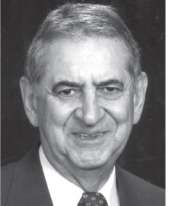 |
Dr. Nicholas J. Pagano
Dr. Nicholas J. Pagano, formerly Senior Scientist with the Air Force Research Laboratory, has made pioneering and seminal contributions to the field of composite materials for over 30 years. Dr. Pagano was the first to recognize the importance of interlaminar phenomena in high-performance composite materials. His discovery of the “stacking sequence phenomenon” led to new practices to reduce the potential for delamination. Read More He formulated models to describe this phenomenon with both closed-form and numerical approaches. In a second area of contribution, he developed analytical models for bending of laminated plates that have served as the reference for all following work in the mechanics of laminated plates. His third major contribution has been in the treatment of brittle-matrix composite materials with complex microstructure such as carbon-carbon and ceramic-matrix composites. |
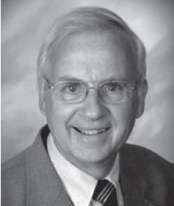 |
Dr. James M. Whitney
Dr. James M. Whitney is the John F. and Leona D. Torley Chair in Composite Materials at the University of Dayton. He previously served as research scholar at the Air Force Materials Laboratory at Wright-Patterson Air Force Base for 30 years. An internationally recognized authority in the mechanics of fiber-reinforced composites, he has made seminal contributions to the development of laminated plate and shell theory, micromechanics experimental methods, and interlaminar analysis. Read More Dr. Whitney has more than 125 publications, including two textbooks. He also contributed to the Delaware Composites Design Encyclopedia and participated in numerous short courses with CCM. Co-founder and first president of the American Society of Composites, he holds Fellow status in ASME, ASTM, and ASC. Dr. Whitney received the ASTM Award of Merit for his work in standardization of test methods for advanced composite materials. |
2002
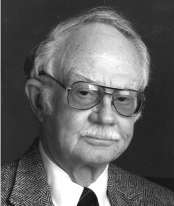 |
Dr. Roy L. McCullough
The late Dr. Roy L. McCullough is considered by many as one of the “founding fathers” of the Center for Composite Materials at the University of Delaware, where he served for 30 years, both in the Chemical Engineering Department and at the Center as either Associate Director or Director from the Center’s inception in 1974 up until 2001. Read More Widely recognized as a world leader in composite interfaces, Dr. McCullough came to the University of Delaware to serve as Professor in the Department of Chemical Engineering in 1971, having earned his Ph.D. in Physical Chemistry from the University of Mexico. Serving as Associate Director of CCM in 1978, Acting Director in 1985, and as Director from 1990 to 1994, Dr. McCullough was committed to the vision of creating an interdisciplinary research center in composite materials, helping to establish the Army Research Center of Excellence at CCM. His public contributions included articles in the Encyclopedia Britannica and Scientific American, and he served on the Editorial Board of Composites Science and Technology, while authoring the book, Concepts of Fiber and Resin Composites. Dr. McCullough excelled as an educator, scholar, and scientist. His far-reaching knowledge, clear vision, humble leadership and unwavering commitment to education have proven invaluable to the more than 80 graduate and undergraduate students he advised while at the University. His contributions to science, education, and research continue to influence and stimulate the growth of composites today. |
1999
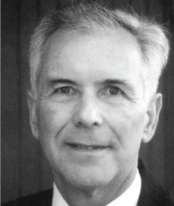 |
Dr. George S. Springer
Prof. George S. Springer, Paul Pigott Professor of Engineering and Chair of the Department of Aeronautics and Astronautics at Stanford University, is the 1999 recipient of the Medal of Excellence in Composite Materials. He received his Ph.D. degree from Yale in 1962 and held teaching positions at the Massachusetts Institute of Technology (MIT) and the University of Michigan before joining Stanford’s faculty in 1983. He was Visiting Professor of Mechanical Engineering at MIT in 1979-80. Prof. Springer has also served as a consultant to industrial and government organizations both in the United Stated and abroad. Read More Springer is the author or co-author of 12 books and more that 200 technical papers and reports. He has been elected to the National Academy of Engineering and is a Fellow of the American Society of Mechanical Engineers, the Society for the Advancement of Materials and Process Engineering, the Hungarian Academy of Science and the American Institute of Aeronautics and Astronautics. Springer was AIAA’s Engineer of the Year in 1995 and was awarded the Worcester Reed Warner medal by ASME in 1994. He has also received the Ralph R. Teetor Award from the Society of Automotive Engineering, the Public Service Group Achievement Award from NASA, and the Delmonte Award from SAMPE. Involved with composite materials since 1962, Springer is widely known for his models describing the effect of the environments on composites and the curing process from epoxy-matrix and thermoplastic composites. His computer codes, which are based on these models, CURE, WIND, PLASTIC, and SECURE, are used by all of the major aerospace companies and the U.S. government agencies. Prof. Springer has been the Editor of the Journal of Reinforced Plastics and Composites since 1982. HE is a member of the International Committee on Composite Materials and a board member of Hexcel Corporation. Prof. Stephen Tsai, one of the first recipients of the MEdal of Excellence, has described George Springer as a “giant in composite materials.” It is thus fitting that he receive this tribute on the occasion of the Medal’s 15th anniversary and the University of Delaware-Center for Composite Materials 25th. |
1997
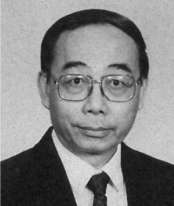 |
Dr. C. T. Sun
Dr. C. T. Sun has been a leader in composites research at Purdue University since 1968, where he has served as the Neil A. Armstrong Distinguished Professor of Aeronautics, working primarily in impact and failure of composite materials and structures. Read More A pioneer in the modeling of dynamic penetration of composite laminates, Dr. Sun, a Mechanical Engineering graduate of the National Taiwan University, has been the recipient of many prestigious awards during his career, including the American Society of Composites Distinguished Research Award (1995), the American Institute of Aeronautics and Astronautics Structural Dynamics & Materials Award (1997), and the ASM Koiter Medal (2007). Dr. Sun’s countless written works in fracture mechanics and smart materials have been featured in many journal publications, including the Journal of Composite Materials, Composites Science and Technology, the International Journal of Damage Mechanics, and Mechanics of Composite Materials and Structures, all of which he has served on the editorial boards. While at Purdue University, Dr. Sun has earned the Sigma Xi Purdue University Faculty Research Award (2005), the Research Excellence Award in the Schools of Engineering (2004), and has supervised an extensive group of graduate students, many of whom who have gone on to teach at universities in the U.S. and abroad. He is also a Fellow of the American Society of Mechanical Engineers. |
1996
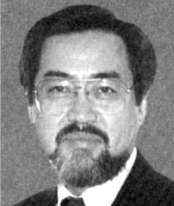 |
Dr. H. Thomas Hahn
Dr. H. Thomas Hahn is the Raytheon Distinguished Professor of the Mechanical and Aerospace Engineering Department with a joint appointment in the Materials Science and Engineering Department and the California NanoSystems Institute. He is also a Fellow of the American Society of Mechanical Engineers, a Fellow of the American Society for Composites, and a member of the National Academy of Engineering of Korea. Read More Dr. Hahn earned his Ph.D. at Penn State University, where he became the Founding Director of the Composites Manufacturing Technology Center. He has worked for the Air Force Materials Laboratory and Lawrence Livermore National Laboratory and was a member the faculty at Washington University in St. Louis from 1979 to 1986, and has served as Hughes Aircraft Company Chair in Manufacturing Engineering at UCLA, as well as founder and Director of UCLA’s Integrated Manufacturing Engineering program. While at UCLA, he also served as President of the American Society for Composites from 1996-97. Dr. Hahn is currently Editor-in-Chief of the Journal of Composite Materials. Dr. Hahn’s litany of awards received include the Outstanding Research Award from the Penn State Engineering Society (1991), the Charles Russ Richards Memorial Award from Pi Tau Sigma and the American Society of Mechanical Engineers (1998), the 1999 Technomic Award for Excellence in Composites from the American Society for Composites, and the Distinguished Engineering Alumni Award from the Seoul National University (2000). Dr. Hahn has published close to 175 papers and chapters in books, scholarly journals, and conference proceedings on these and other subjects, and has been Degree Committee Chairman for 46 masters and doctoral degree candidates. |
1994
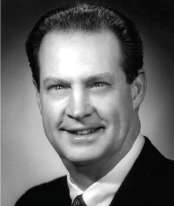 |
Dr. R. Byron Pipes
Dr. R. Byron Pipes is a member of the National Academy of Engineering, former President of Rensselaer Polytechnic Institute and pioneering Director of the Center for Composite Materials, where he initiated the University-Industry Consortium, forging a vital relationship between the Center and most major composite materials suppliers worldwide. Read More After receiving an M.S. in Engineering from Princeton University and a Ph.D. from the University of Texas-Arlington, Dr. Pipes joined the University of Delaware in 1974, where he ascended the ranks from associate professor to Dean of the College of Engineering in 1985, and later Provost and vice President for Academic Affairs in 1991. While serving as Director at CCM, the Center was named the NSF National Engineering Research Center for Composites Manufacturing Science and Engineering in 1985. The many awards bestowed on Dr. Pipes include the Gustus L. Larson Memorial Award from Pi Tau Sigma and the ASME (1983), the Robert L. Spencer Professor of Engineering (1989), and the Outstanding Research Award from the American Society of Composites (1994). In 1993, Pipes became a recognized member of Swedish Royal Academy of Engineering (IVA). Dr. Pipes has also served as a distinguished visiting scientist at the College of William and Mary, the Goodyear Professor of Polymer Engineering at the University of Akron, and the John L. Bray Distinguished Professor of Engineering at Purdue University. He has co-authored four books and edited one book series (the Elsevier Publishers Composite Materials Series) and has served on more than 20 state and national panels and committees, including the Aeronautics and Space Engineering Board, the U. S. Army Science Board, the Congressional Office of Technology Assessment Advisory Panel, and the State of Delaware Governor’s High-Technology Task Force. |
1993
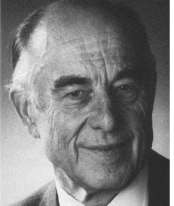 |
Dr. Georg Menges
Dr. Georg Menges served as Director of the Institute of Plastics Processing (IKV) in Aachen, Germany, from 1965 to 1987, holds a doctorate from the University of Stuttgart and is an inductee of the Polymer Processing Hall of Fame in 1989 and the Plastics Hall of Fame in 2006. Read More Dr. Menges pioneered the modeling of most aspects of mold design, including mechanical design, mold filling, cooling channel design, PVT behavior on cooling and residual stresses, and was cited as the founder of Computer Aided Engineering for the injection molding process and for his invention of the cold feed pin barrel screw extruder for the rubber industry. Early in his career, Dr. Menges and his research team at IKV conducted important pioneering work both in the refinement of design and processing methods for fiber-reinforced polymer-matrix composites and in the development of new applications for glass- and carbon-reinforced materials. Under his direction, the Institute quadrupled in size. Of the many awards bestowed upon Dr. Menges, some of the most notable include the Swinburne Award and the John W. Derham Memorial Award, the most prized award of the plastics industry in Australia. He has also received the SPE International Award in Plastics Science & Engineering (1983), the Award of the Plastics Processing Technical Association of Japan (1984), and the Hermann F. Mark Medal from the Austrian Research Institute for Chemistry and Technology (1985). |
1992
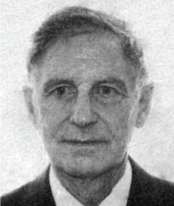 |
Dr. Herbert Blades
Dr. Herbert Blades is mostly notably accredited for his efforts in inventing the engineering process to commercialize Kevlar for the DuPont Company, which he joined in 1954. His 30-year career at DuPont, which he joined after earning a doctorate in physical chemistry from McGill University in Canada, culminated in his retirement as a Research Fellow in 1985. Read More He was awarded the Lavoisier Medal, which honors scientists and engineers from the DuPont Company for outstanding contributions that have resulted in a measurable business impact or an enduring technical achievement. |
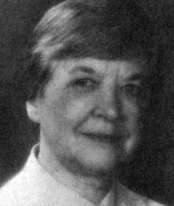 |
Ms. Stephanie J. Kwolek
The late Ms. Stephanie J. Kwolek is most notably accredited for her efforts in the invention of Kevlar, which she discovered while working for DuPont in 1964. An organic chemist known for her work in polymer chemistry, Ms. Kwolek worked as a research scientist for 40 years before retiring in 1986. Read More Ms. Kwolek has received a number of professional honors and awards throughout her career, from organizations like ASTM, SAMPE, the Franklin Institute, American Chemical Society, American Society for Metals and the Society of Plastics Engineering. The recipient or co-recipient of 17 patents. Ms. Kwolek also received the National Medal of Technology in 1996 and the Perkin Medal in 1997. In 1995 she became the fourth woman to be added to the National Inventors Hall of Fame and in 2003 was added to the National Women’s Hall of Fame. |
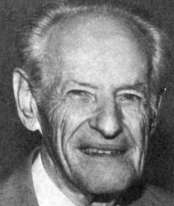 |
Dr. Paul Morgan
The late Dr. Paul Morgan is cited for his pioneering work in condensation polymerization, which provided the basis for the discovery and development of Kevlar® aramid fiber technology. Morgan earned a doctoral degree in organic chemistry from Ohio State University. He authored 28 papers, 37 U.S. patents, and a book, Condensation Polymers: By Interfacial and Solution Methods. Dr. Morgan received a number of professional honors and awards during his career, including the Midgley Award and the Polymer Chemistry Award from the American Chemical Society, the Howard N. Potts Medal from the Franklin Institute, and the Engineering Materials Achievement Award from the American Society for Metals. Read More Dr. Morgan retired from the DuPont Company in 1976 and was selected to receive the Medal of Excellence only a month after his death in May of 1992. Nobel laureate Paul Flory said of him, “Paul Morgan’s research is characterized by an extraordinary degree of originality. He advanced both fundamental polymer chemistry and technological developments, the two in concert to a degree scarcely to be found in the work of any scientist since Carothers.” |
1991
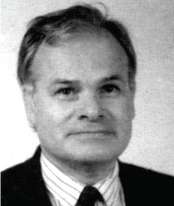 |
Dr. Roger R. Naslain
Dr. Roger R. Naslain has been a Professor at the University of Bordeaux for 50 years, beginning his career as a chemical and physical scientist at the French institution in 1969. Since that time, he has served as the first Director of the Institute for Composite Materials and Director of the Laboratory for Thermostructural Composites, established to conduct fundamental and applied research on ceramic-matrix composites. Read More Having received his master’s degree in chemical and physical sciences from the University of Rennes and his doctoral degree in chemistry from the University of Bordeaux, Dr. Naslain went on to do postdoctoral work at the General Electric R&D Center. Later, he and his colleagues designed and experimentally validated the Chemical Vapor Infiltration process, one of only a few techniques used in the world to manufacture large parts from the carbon and silicon carbide composites for aerospace applications. Dr. Naslain has authored or co-authored more than 300 articles, 17 patents and eight books on composite materials and four special issues on scientific journals devoted to ceramic-matrix composites. A member of the editorial board of Composites Sciences and Technology, he has also been awarded the 2000 International Ceramics Prize and was named a Distinguished Lifemember of the American Ceramic Society in 2004. |
1990
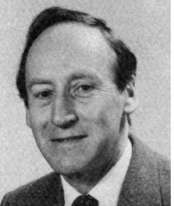 |
Dr. Derek Hull
Dr. Derek Hull has been the Goldsmith’s Professor and Head of the Department of Materials Science and Metallurgy at the University of Cambridge, England, where he still serves today as a Distinguished Research Fellow. His contributions in the field of composite materials has covered a wide range of materials, including martensitic transformations, dislocation theory, creep, fatigue and brittle fracture of metals, and radiation damage. Read More Dr. Hull obtained his B.S., Ph.D. and D.S. degrees at the University of Wales, after which he went on to become a Senior Scientific Officer at the Atomic Energy Research Establishment in Harwell, Oxfordshire, and later held various appointments at the University of Liverpool, including Head of Department, Dean of Engineering and Pro-Vice-Chancellor. The founding Chairman of the British Composites Society, Dr. Hull has published over 200 papers and several books, one being, An Introduction to Composite Materials, a text widely used in composite materials courses at universities worldwide. The Institute of Metals honored him with the Rosenhain Medal in 1973 and the A.A. Griffith Silver Medal in 1985. In 1986, he was elected a Fellow of the Fellowship of Engineering and was elected a Fellow of the Royal Society in 1989. |
1989
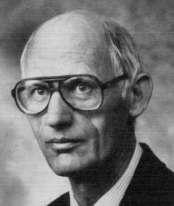 |
Dr. Richard M. Christensen
Dr. Richard M. Christensen has compiled a varied career in industry, academia and national laboratories, spanning almost 50 years, since receiving his Doctorate of Civil Engineering from Yale University in 1961. During that time, he has served as an Assistant Professor of Applied Mechanics at the University of California at Berkeley (1964-67), Professor of Mechanical Engineering at Washington University, St. Louis (1974-76) and currently, as a Research Professor in the Department of Aeronautics and Astronautics, Mechanical Engineering, at Stanford University. Read More A member of the National Academy of Engineering, Dr. Christensen has received the Worcester Reed Warner Medal from the American Society of Mechanical Engineers, the Prager Medal from the Society of Engineering Science, and the ASME Nadai Medal in 2006. He has published more than 50 papers and written several books including Theory of Viscoelasticity and Mechanics of Composite Materials. Dr. Christensen received a B.S. from the University of Utah before receiving his Masters and Doctorate in Engineering from Yale University. A Fellow of ASME and SES, he has also served as Chairman of the Applied Mechanics Division of ASME and Chairman of the U.S. National Committee for Theoretical and Applied Mechanics, and is a frequent contributor to iMechanica, an Internet blog that enhances communication and knowledge among mechanicians. |
1988
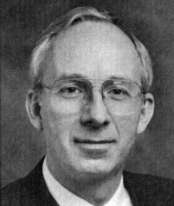 |
Dr. Karl M. Prewo
Dr. Karl M. Prewo has served as Senior Executive and Chief of Technology and Innovation for the Connecticut Center for Advanced Technology, Inc. and Director of Integrated Materials, Design and Manufacturing at the United Technologies Research Center, during his career in composites, spanning more than 40 years. Read More After graduating with a Doctor of Engineering Science in Metallurgy from Columbia University in 1969, Dr. Prewo joined a team of researchers at United Aircraft Corporation (later United Technologies) that developed the first flight-worthy metal-matrix composite fan blades, and in 1974, the establishment of a wide-ranging program in fiber-reinforced glass and glass/ceramic-matrix composites. Dr. Prewo was the recipient of the 1986 George Mead Medal of Achievement, United Technologies Corporation’s highest award for engineering, the 1994 National Association for Science and Technology in Society Award, and the 2000 United Technologies Research Center Outstanding Achievement Award. Well known for his contributions to structural ceramics and composites, Dr. Prewo is a Fellow of the American Ceramic Society and holds 58 patents in the fields of ceramics and composite materials technology. |
1987
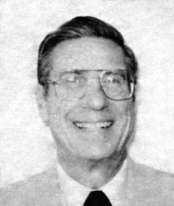 |
Dr. Roger Bacon
The late Dr. Roger Bacon was a world renowned physicist and materials scientist in the field of carbon fiber development and research, with approximately 22 publications and patents to his credit. Born in Cleveland, Ohio in 1927, Dr. Bacon graduated with a B.A. in physics from Haverford College in Philadelphia in 1951 before going on to earn his doctorate in solid-state physics from the Case Western Reserve University’s Institute of Technology in 1955. At that time, Dr. Bacon began his career with Union Carbide Corporation in research and development, becoming Group Leader in 1962. Read More A technology fellow at the Parma Technical Center, Amoco Performance Products, Inc., Dr. Bacon’s work covered structure and physical properties of graphite crystals and whiskers, carbon fibers, and composites, for which he received a patent in 1960 on “Filamentary Graphite and Method for Producing the Same.” He served as Principal Investigator, U.S. Air Force (1965-1970), on inventor of patented processes on stress-carbonization and stress-graphitization of carbon fibers, and was an invited lecturer for the United Nations Development Program in India on advanced fibers and composites, and was invited speaker at the Royal Society (London). In 2004, the Franklin Institute in Philadelphia awarded him a Benjamin Franklin Medal for Mechanical Engineering, citing his contributions to the study of carbon fibers and methods for their manufacture. Dr. Bacon also served as a member of the American Physical Society for Advancement of Materials and Processing Engineering. |
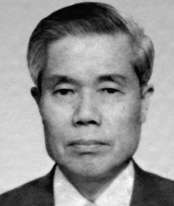 |
Dr. Akio Shindo
Dr. Akio Shindo has served as Technical Advisor, Corporate Research & Development Laboratory, for the Toa Nenryo, Co., Ltd., and has been honored for his work in plastics and composites and his contributions to the development of PAN-based carbon fiber. Read More After receiving his B.A. in chemistry at the Hiroshima University in 1951, Dr. Shindo continued postgraduate studies there and was granted a Doctor of Science in 1961 for a thesis on “Studies on Graphite Fibre.” Dr. Shindo was then employed at the Government Industrial Research Institute, Osaka, from April 1952 to March 1987, during which time he made fibers with a modulus of more than 140 GPa, or three times that of rayon-based fibers at the time. The process was later implemented by other Japanese researchers, eventually leading to pilotscale production in 1964. In 1977, Dr. Shindo received the Japan Society for Technology of Plasticity AIDA Medal, the Society’s highest award, presented for his comprehensive contribution to the plastic forming and experiments through plasticity theory. In 1987, he joined Toa Nenryo Kogyo, Co., Ltd., and has since been honored by the Chemical Society of Japan and by the State for his contributions in the field of composite materials. |
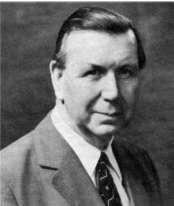 |
Dr. William Watt
The late Dr. William Watt, OBE, FRS, was posthumously awarded the Medal of Excellence Award in 1987, for his pioneering work in the development of carbon fibers, and widely acclaimed technical innovation within the composites industry. Read More Early education at the George Heriot School was followed by work as a laboratory assistant at the Edinburgh and East Scotland College in Agriculture. At Heriot Watt College in Edinburgh and the University of London he was awarded first class honors in chemistry. His 39-year career with Royal Aircraft Establishment, Farnborough, covered areas of high temperature research of non-metallic materials, and technology for turbine blades and rocket nozzle applications. In 1960, Mr. Watt became an individual merit senior principal scientist at RAE in recognition of his outstanding work on carbon and graphite. His experiments, first with cellulose fibres, and finally with Courtelle, led to the production of carbon fibres with a high degree of preferred crystallite orientation. The invention was patented in 1964, and was recognized in 1968 by the civil service Wolfe Award for outstanding technical innovation. The OBE Award, in 1969, was followed in 1971 by the USA Charles Pettinos Award for research and innovation in carbons. A Fellow of the Royal Society (1976), he was presented an honorary Doctorate of Science by his old college Heriot Watt. |
1986
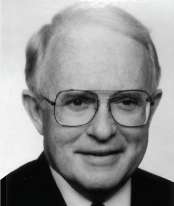 |
Dr. Alan M. Lovelace
The late Dr. Alan M. Lovelace began federal service with the United States Air Force in 1954, serving at the Air Force Materials Laboratory, Wright-Patterson Air Force Base, Ohio, and was named Director in 1967. From 1972 to 1973, he served as Director of Science and Technology with the Air Force Systems Command, Andrews Air Force Base, Washington, D.C. and during 1973-74 was Deputy Assistant Secretary of the Air Force for Research and Development. Read More Born in St. Petersburg, Florida in 1929, he received Bachelor’s, Master’s and Doctoral Degrees in Chemistry from the University of Florida, and during his career he served as Corporate Vice President and General Manager of Space Systems Division, General Dynamics Corporation and was the Acting Administrator of the National Aeronautics and Space Administration, joining NASA as Associate Administrator for the Office of Aeronautics and Space Technology in 1974. Dr. Lovelace retired as Deputy Administrator of NASA in December 1980 but stayed with the Administration through the first flight of the Space Shuttle Columbia. Dr. Lovelace was also the recipient of the presidential Citizens Medal, the Department of Defense Exceptional Service Medal, the Air Force Decoration for Exceptional Service, the National Civil Service League Career Service Award, the Office of Aerospace Research Award for Outstanding Contributions to Research and the 1984 von Karman Medal. In 1991 he was named Senior Vice President for Space Policy and Technology at General Dynamics, operating from an office in Washington, D.C., as well as chairman of the company’s Commercial Launch Services subsidiary. A Fellow and past President of the American Institute of Aeronautics and Astronautics, Dr. Lovelace was also a member of the National Academy of Engineering, the International Academy of Astronautics, the Air Force Association, Sigma Xi and Phi Beta Kappa. |
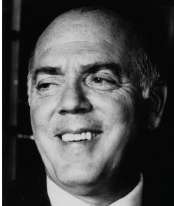 |
Mr. George P. Peterson
Mr. George P. Peterson assembled a distinguished 35-year career in the aeronautics field, which he began in 1951 by joining the United States Air Force Materials Laboratory at Wright-Patterson Air Force Base in the Non-Metallic Materials Division, and culminated in his retirement in 1985 as Director of the Materials Laboratory, Air Force Wright Aeronautical Laboratories, Aeronautical Systems Division, Air Force Systems Command, Wright-Patterson Air Force Base, Ohio. Read More Born in New York City in 1930, Mr. Peterson received a Bachelor of Science Degree in Mechanical Engineering from Columbia University in 1951, after which he joined the US Air Force. His professional career included service as Chief of the Air Force Materials Laboratory’s West Coast Office at Air Force Space Systems Division, and he was named Chief of the Advanced Composites Division of the Air Force Materials Laboratory in 1965 and Chief of the Manufacturing Technology Division of the Air Force Materials Laboratory in 1972. Mr. Peterson also served as Director of the Air Force Materials Laboratory from 1974-1977. As Deputy Director of the A.F. Wright Aeronautical Laboratories, from 1977-1980, Mr. Peterson managed a complex research and development mission to further the development of Air Force systems. In 1973 he was awarded the Structural Dynamics and Materials Award by the American Institute of Aeronautics and Astronautics. Mr. Peterson was cited by Aviation Week magazine in 1974 as one of the top twenty individuals in the U.S. for his contribution toward advances in aerospace materials technology, and he was honored with Lifetime Memberships in the Society for the Advancement of Materials and Process Engineering and in the American Society for Metals. In 1985 he was elected to the National Academy of Engineering. |
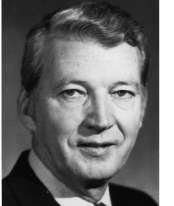 |
General Bernard A. Schriever
The late General Bernard A. Schriever began his distinguished 35-year military career with the United States Air Force in 1931. During his service, he headed all Air Force ballistic missile and space development programs, including the development and deployment of the Thor, Atlas, Titan and Minuteman missile systems, from 1954-1966. Read More General Schriever also spent the last 17 years of his career in positions of high responsibility in military research and development, including Commander of the Air Force Systems Command from 1959-1966. Born in 1910 in Bremen, Germany, he immigrated to the United States in 1917 and received a Bachelor of Science Degree from Texas A& M in 1931. In 1942, he earned a Master of Science Degree in Aeronautical Engineering from Stanford University. While serving his country, General Schriever was the recipient of the Army Distinguished Service Medal, The USAF Distinguished Service Medal with one Oak Leaf Cluster, the Legion of Merit, Air Medal and Purple Heart. An Aviation Hall of Fame inductee in 1980, General Schriever served as Director for various groups, including American Medical International, the Control Data Corporation, Eastern Air Lines, Emerson Electric and the Wackenhut Corporation. He was also presented Honorary Doctor of Science Degrees from Creighton University, Rider College, Rollins College and Adelphi College, and was awarded an Honorary Doctor of Aeronautical Science Degree from the University of Michigan, and a Doctor of Engineering Degree from Brooklyn Polytechnic Institute, Pennsylvania Military College, and Morton College. In 1998, Falcon Air Force Base near Colorado Springs was named in General Schriever’s honordue to his pioneering work in the development of the United States’ ballistic missile programs. Schriever Air Force Base is home to the Air Force Space Command’s 50th Space Wing. Shortly before his death in 2005, the Space Foundation awarded General Schriever its highest honor, the General James E. Hill Lifetime Space Achievement Award, presented annually to recognize outstanding individuals who have distinguished themselves through lifetime contributions to “the betterment of humankind through the exploration, development and use of space, or the use of space technology, information, themes or resources in academic, cultural, industrial or other pursuits of broad benefit to humanity.” |
1985
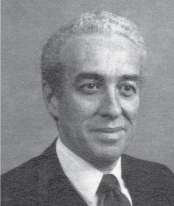 |
Dr. B. Walter Rosen
Dr. B. Walter Rosen was President of Materials Sciences Corporation, Spring House, Pennsylvania. He is the founder and senior executive of the professional services organization in the field of structures and materials engineering with an emphasis on composite materials. Read More Born in New York City in 1931, Dr. Rosen received a Bachelor of Civil Engineering from Cooper Union in 1952 and a Master of Science in Applied Mechanics from Virginia Polytechnic Institute in 1955. He earned his Ph.D. in engineering mechanics from the University of Pennsylvania in 1968. Dr. Rosen began his professional career with the National Advisory Committee for Aeronautics, Langley Field, as an aeronautical research scientist in 1952. Following his graduation from Virginia Polytechnic Institute, he joined the Research and Advanced Development Division of AVCO as the Deputy Director of the Flight Vehicle Project Office. Between 1962 and 1970 Dr. Rosen was a consulting engineer with the General Electric Space Sciences Laboratory. He founded Materials Sciences Corporation in 1970. Dr. Rosen has been a consultant and Lecture Series Director for the NATO Advisory Group for Aerospace Research and Development Organization, Affiliate Professor at Drexel University, and is currently Adjunct Professor in the Department of Mechanical Engineering and Engineering Mechanics at the University of Pennsylvania. Dr. Rosen has provided technical leadership for engineering efforts directed towards the behavior of materials and utilizing that understanding for the development of practical structures. |
1984
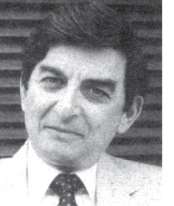 |
Dr. Zvi Hashin
The late Dr. Zvi Hashin was an honorary member of the National Society of Engineering and the Nathan Cummings Chair of Mechanics and Solids in the Department of Solid Mechanics, Materials and Structures, Tel Aviv University, Tel Aviv, Israel. Read More Born in Danzig, Poland, in 1929, Dr. Hashin studied at the Technion–Israel Institute of Technology from 1949 to 1955, receiving a Bachelor of Science in Civil Engineering in 1953, a Civil Engineering Diploma in 1954 and a Master of Science in Mechanics in 1955. He earned a degree of Docteur es Sciences (with distinction) at the University of Paris (Sorbonne) in 1957. Following his graduation from the University of Paris, Dr. Hashin was Lecturer and then Senior Lecturer at Technion from 1957 to 1959, and was Research Fellow at Harvard University in 1959 and 1960. He joined the University of Pennsylvania as Associate Professor in 1960 and was Professor of Engineering Mechanics from 1965 through 1971. In 1971, Dr. Hashin became Professor, Department of Materials Engineering, Technion, Israel, where he remained until 1973. As Professor and Founding Chairman of the Department of Solid Mechanics, Materials and Structures, he joined Tel Aviv University in 1973. He also served as Visiting Professor at the University of Pennsylvania from 1977 to 1979. Dr. Hashin received the Landau Prize in 1972. He was Scientific Advisor to the Materials Sciences Corporation since 1970 and was been President of the Israel Society of Theoretical and Applied Mechanics and the Delegate to IUTAM since 1976, and was a Fellow of the American Society of Mechanical Engineers. |
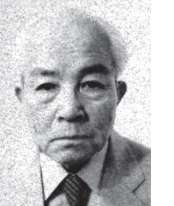 |
Dr. Tsuyoshi Hayashi
The late Dr. Tsuyoshi Hayashi was Professor Emeritus of the University of Tokyo, Japan, and the President of the Japan Plastic Inspection Association, Tokyo. Born in Iijima, Nagano-Prefecture, Japan, in 1911, Dr. Hayashi graduated from the Department of Aeronautics, Tokyo Imperial University in 1935. He earned a Doctor of Engineering at Tokyo Imperial University in 1947 for his work describing the “Theory of Elasticity of Orthogonal Anisotropic Solids”. Read More In 1935, Dr. Hayashi was appointed Lecturer in the Department of Aeronautics, Tokyo Imperial University, and then Associate Professor in 1936. In 1941, he became a Research Scientist of the Aeronautical Research Institute at Tokyo Imperial University. He joined the University of Tokyo in 1948 as Professor, Department of Mathematics, and in 1955 became Professor of the newly established Department of Aeronautics, where he remained until his “retirement” in 1972. He was appointed Professor, Department of Mathematics, Faculty of Science and Engineering, Chuo University in 1972, retiring again in 1982. He served as the general Chairman of the Fourth International Conference on Composite Materials, Tokyo, in 1982. Dr. Hayashi was also Visiting Professor at Stanford University and at the Royal Institute of Technology, Sweden. Dr. Hayashi was the Founder and first President of the Japan Reinforced Plastics Society in 1955, and was President or Chairman of several societies and associations including current positions as the Chairman, Technical Committee, National Aerospace Development Agency; Chairman, Composite Materials Research and Development Committee for Future Industry, MITI; President, Japan Plastics Inspection Association; and President, Japan Society for Testing Plastics. He authored over 200 technical papers and authored or edited twelve books. |
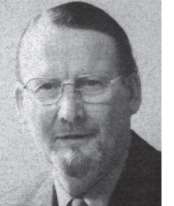 |
Dr. Anthony Kelly
The late Dr. Anthony Kelly was an Emeritus Professor and a Distinguished Research Fellow at Cambridge. He was a Fellow of the Royal Society, a Fellow of the Royal Academy of Engineering and a Foreign Associate of the US National Academy of Engineering. Read More He was a Fellow of the Institute of Physics, a Fellow of the Institution of Materials Mining and Metallurgy (and past President) as well as being a founding Fellow of Churchill College Cambridge. He held Honorary Degrees from Universities in Europe, the USA and Korea. He was also an Honorary Fellow of the Institute of Linguists, of the Institution of Civil Engineers and of the Institution of Structural Engineers. Born in Great Britain in 1929, Dr. Kelly was a pupil of Presentation College, Reading, where in 1946 he gained a Major Open Scholarship to Reading University. In 1949 he obtained first class honors in the Bachelor of Science (Physics). He entered Trinity College, Cambridge, as a research student at the Cavendish Laboratory in physics, gaining his Ph.D. in 1953. Following his graduation from Trinity College, Cambridge, Dr. Kelly performed research at Illinois University and Birmingham University, where he was ICI Research fellow, he became Assistant, then Associate Professor of Metallurgy and Materials Science in the Technological Institute of Northwestern University, Chicago. In 1958 he was appointed to a Lectureship in Metallurgy at Cambridge University and was one of the Founding Fellows of Churchill College, Cambridge, where he was Director of Studies in Natural Sciences until 1967. Dr. Kelly was appointed Superintendent of the Division of Inorganic and Metallic Structure at the National Physical Laboratory in 1967. He earned the ScD of the University of Cambridge in 1968. He then became Deputy Director of the laboratory’s Materials Group in 1969. He was Vice-Chancellor of the University of Surrey from 1975 until 1994. While there he established the Surrey Research Park. Dr. Kelly received several major prizes and awards and was elected Fellow of the Royal Society in 1973. He wrote over one hundred scientific papers and authored five books. He served on several national and international committees, was Director of the British Non-Ferrous Metals Research Association from 1970 to 1972, and was Chairman of the Engineering Materials Requirements Board of the Department of Industry from 1976 through 1980. |
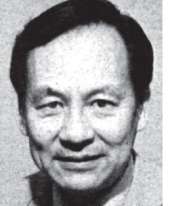 |
Dr. Stephen W. Tsai
Dr. Stephen W. Tsai was Chief of the Mechanics and Surface Interactions Branch, Nonmetallic Materials Division, Materials Laboratory, Air Force Wright Aeronautical Laboratories, Aeronautical Systems Division, Air Force Systems Command, at Wright-Patterson Air Force Base, Ohio. He is currently Professor of Emeritus at Stanford University Structures and Composites Laboratory. Read More Born in Peking, China, in 1929, Dr. Tsai graduated from Yu Yin Academy, Peking, in 1947. He received a Bachelor of Science Degree in Engineering from Yale University in 1952, and earned his Doctorate Degree in Engineering from Yale in 1961. Following his graduation from Yale, Dr. Tsai worked for Foster Wheeler Corporation as an engineer from 1952 through 1958, when he returned to Yale to pursue his doctoral studies. In 1961, he joined Aeronutronic in Newport Beach, California, as a composite materials engineering, and held that position until 1966. Dr. Tsai was Professor of Engineering at Washington University, St. Louis from 1966 to 1968. He became Chief Scientist of the Air Force Materials Laboratory in 1968 and was the Battelle Visiting Professor at Ohio State University in 1969 and was Adjunct Professor at the Naval Postgraduate School in 1982. He has written a textbook, edited three books, published numerous articles and initiated a composite materials training course utilizing portable and personal computers. Several formulas in composite materials bear his name. He is a member of Tau Beta Pi, Sigma Xi, American Society of Mechanical Engineers and the Society of Aerospace Materials and Process Engineers and National Academy Engineering. |





